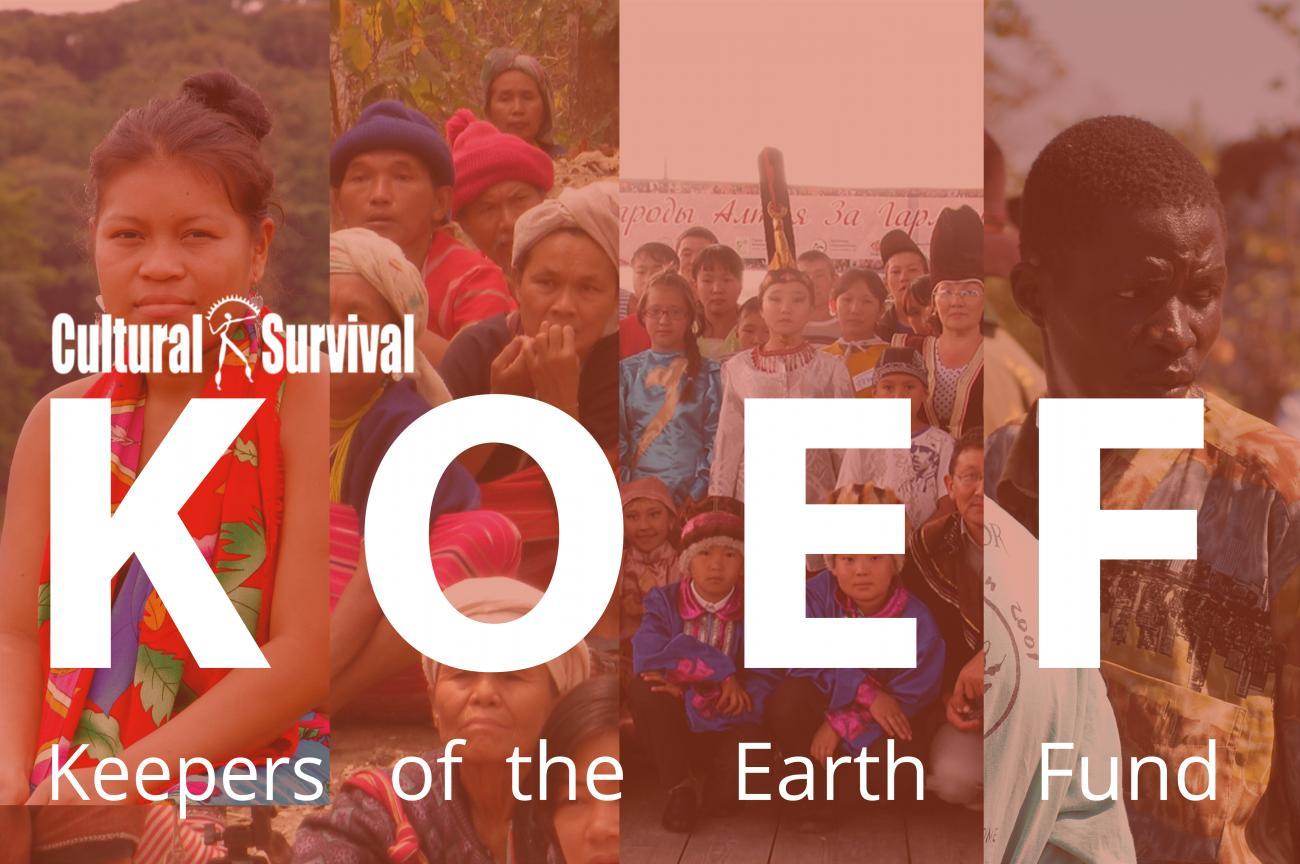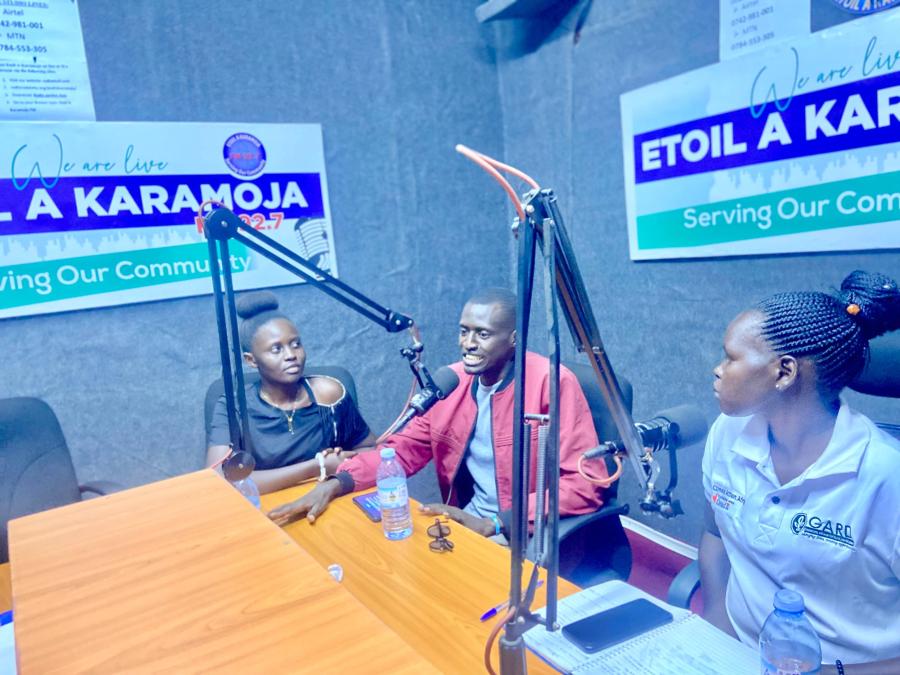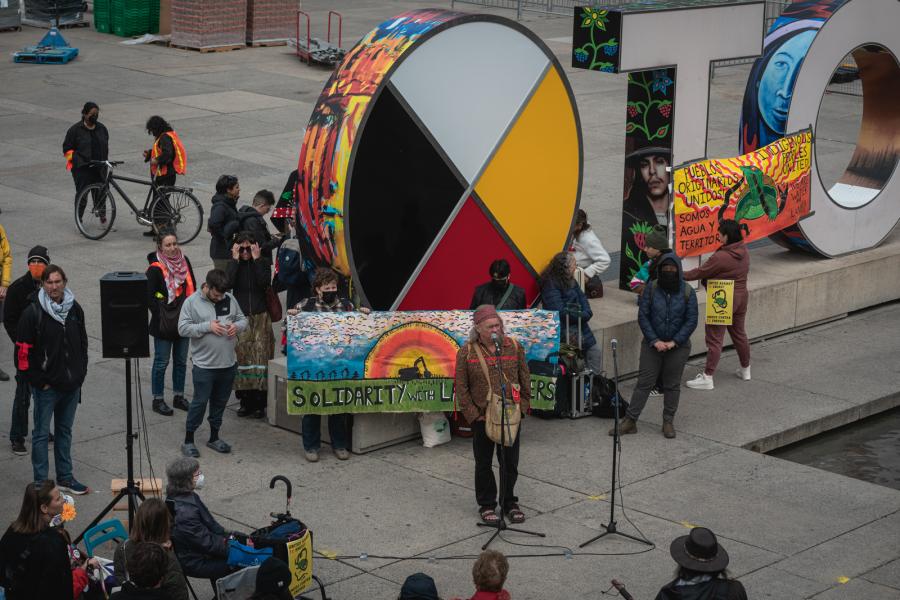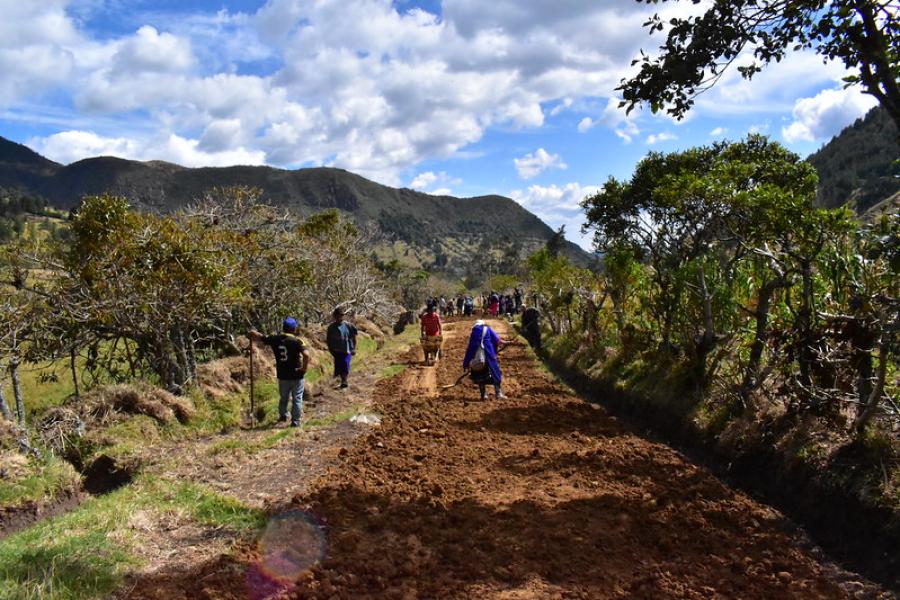
Cultural Survival’s Keepers of the Earth Fund provides small grants designed to support Indigenous Peoples’ community advocacy and development projects. Since 2007, the Fund has provided nearly $2.5 million in grants and technical assistance to over 350 Indigenous-led projects in 64 countries around the world. Cultural Survival is excited to announce the 14** recipients of our Free, Prior and Informed Consent (FPIC) and Self-Governance Initiative, totaling $68,112.
FREE, PRIOR AND INFORMED CONSENT
Associação Xavante Warã (Brazil)
Political Empowerment of the People A'uwe Xavante for Prior Consultation
Established in 1996 to defend the rights of Xavante Peoples, the Association is working to develop and implement its FPIC policy to ensure Xavante rights are recognized and respected in government-initiated projects. Currently, there are four major roadways that cross Xavante Warã lands and that are targeted for paving. The Association is fighting against these projects, demanding that government uphold its responsibility to conduct the appropriate environmental and social impact studies. The KOEF grant will help the Association continue to mobilize and demand government consultation, conducting of impact assessments, and access to information.
Cherangany Multipurpose Development Programme (CHEMUDEP) (Kenya)
Cherangany Indigenous Peoples Community Engagement & Negotiation Project
The Cherangany community has an established protocol for how outsiders should communicate with them to obtain their FPIC and is using the protocol to address shortfalls in the 2005 Forest Act, and the 2010 Kenya Constitution, and to work with the Kenya Water Towers Agency (KWTA) on its current conservation project plans. These plans include the resources that extend from the land that belongs to the Cherangany People who have been totally ignored in the KWTA’s planning process. The Cherangany community have endured ongoing violence and forced evictions, and CHEMUDEP is leading the assertion of land and territorial rights for their people.
Coordinadora Indígena del Poder Popular de Honduras (CInPH) (Honduras)
Formulation and Management of Ante-Draft Law of Consultation Previa Libre e Informada in Honduras
CInPH will carry out four participatory consultations with community leaders in the departments of La Paz and Intibucá, regarding the proposed law “FPIC in Honduras.” They will develop a document that gathers the requests of Lenca community leaders regarding the implementation of FPIC, with the goal of sharing, reviewing and consolidating demands with other Indigenous organizations in other parts of the country. They will present the final findings to State institutions and congressional representatives. Throughout the project, CInPH will utilize Indigenous community radio stations in Honduras to broadcast advances in the developments of this legislation.
Federación Binacional del Pueblo Zápara del Ecuador y Perú (FEBPZEP) (Ecuador)
Eligibility of the Zápara Nationality of Ecuador Rights Regarding the Exploitation Projects of Blocks 79 and 83
FEBPZEP is a cross border initiative of the Zápara people to improve the living conditions of their communities while ensuring the survival of their language and culture. In the face of recent oil concessions granted by the government of Ecuador, which cover 49 percent of the Zápara territory, FEBPZEP’s project seeks to strengthen the capacity of local organizations and determine strategies for land protection. FEBPZEP will organize assemblies across other Indigenous nations affected by the concessions and will host informational workshops with community members about how to document human rights violations or environmental impacts when they are witnessed. The project also includes consultancy on communications strategies and strategic litigation before human rights bodies.
Federación Indígena Tawahka de Honduras (Honduras)
Build a Regulation or Rules of Application of FPIC for Internal Use by the Tawahka People
With funds from the KOEF grant, the Tawahka people of Honduras will develop a protocol for obtaining FPIC from their community. The drafting will take place with the help of an Indigenous legal expert on the topic. The federation will hold an assembly of all Tawakha communities to review and approve the protocol. The document will then be officially delivered to state institutions to inform pending legislation on implementing FPIC.
Fundacion de Santa Maria para la Promocion Indigena y Agroforestal (México)
Gulinaba Chi’a (“Ask well as it is”)
This project will produce a series of weekly dramatized radio programs and short informational spots for broadcast via community radio station Radio Bë Xhidza, to approximately 21,000 Zapotec listeners in the Sierra Juárez region of Oaxaca, México. The programs will be produced in the Xhidsa language and will discuss issues of FPIC, land rights, and Indigenous rights. Gulinaba Chi’a refers to the investigation by the Traditional Authorities about what the issue is, who it comes from, why it is so, etc., and on that basis, decisions are made.
International Indian Treaty Council (IITC) (USA)
Indigenous Peoples’ Gathering to Honor, Protect, and Defend the Salmon
A KOEF grant enabled IITC to convene in Southcentral Alaska to develop its strategy for responding to the State of Alaska’s environmental laws and policies, which exclude the Alaska Native Tribes in the Matanuska Valley region of Alaska. The project serves the Chickaloon Native Village, an Ahtna Athabascan/Dene’ Alaska Native Tribe, whose ancestral territory spans hundreds of miles in the Upper Cook Inlet of southcentral Alaska. With Alaska Statehood, tracts of traditional Chickaloon lands were dispersed to the State of Alaska and the Alaska Mental Health Trust Authority, including surface and subsurface title. The State of Alaska does not recognize the existence of Chickaloon Native Village and refuses to consult, or exercise even a minimal duty of care. IITC convened the Indigenous communities of southcentral Alaska to share information about how the lack of FPIC has impacted the Salmon Peoples. The participants proposed 27 strategies to protect and defend the salmon and the ecosystems that sustain them, and to uphold the inherent and treaty rights. An outcome declaration emphasized the central importance and responsibilities of Indigenous-led initiatives, including transmitting practical traditional knowledge and ideas to new generations to protect and defend the salmon as a source of nutrition, food sovereignty, cultural and spiritual survival, now and in the future.
Organización de Mujeres Indígenas Unidas por la Biodiversidad de Panamá - OMIUBP (Panamá)
Strengthening the governance of Kuna and Embera Indigenous Peoples through FPICin Panamá
An Indigenous women’s organization in Panama focusing on biodiversity, OMIUBP will carry out two workshops with Kuna and Embera authorities and Indigenous women on the 2016 law passed in Panama titled the Law of Consultation and FPIC without consultation or consent of Indigenous communities. Workshops will guide the traditional leaders in learning about the content of the law, enable sharing their opinions, and analyzing implications for implementation. The workshops will also examine the international framework for FPIC and discuss cases where Indigenous Peoples have succeeded in implementing FPIC internationally.
Red Nacional de Mujeres Indígenas: Tejiendo Derechos por la Madre Tierra y Territorio- RENAMITT (México)
Indigenous Women’s Inclusion in Decisions Regarding Use of Lands and Territories
RENAMITT is a network of Indigenous women from across México who work to defend Mother Earth and Indigenous lands. RENAMITT’s project will include two workshops to develop an FPIC consultation policy in México, to document how consultation is currently taking place in the country, specifically regarding the consultation with Indigenous women, and a comparative analysis will be made on how consultations have been successful in other areas. With their findings, RENAMITT will produce a series of radio programs in three Indigenous languages (Wixarika, Odami, Nahuatl) covering FPIC, for broadcast via community radio in areas where consultations are currently being implemented: Jalisco, Chihuahua, Guerrero and Morelos.
Sunuwar Sewa Samaj (Nepal)
Empowering Koits-Sunuwar Indigenous Communities on the Right to FPIC
The Koits-Sunuwar Indigenous communities are strengthening their negotiating capacity with private enterprises investing in five different hydropower generation in Likhu and Khimti River. Using its KOEF grants, Sunuwar communities will participate in a study on the impact of the five Hydropower Projects on Sunuwar communities living in and around the sites in three districts, namely Okhaldhunga, Ramechhap and Dolakha.
SELF-GOVERNANCE
Maya Leaders Alliance with Julian Cho Society and Toledo Alcaldes Association (Belize)
Yuaminkil Li Komolbe’jil (“Embodying Leadership”)
The Julian Cho Society works to safeguard, promote, and enhance the rights of the Indigenous Maya of southern Belize; protect natural resources and promote sustainable development; and advocate for the well-being of the Maya communities through culturally appropriate social and economic development. The Maya Leaders Alliance is comprised of Maya organizations and individuals who have previously served in traditional representative capacities for 39 Maya villages. The Toledo Alcaldes Association is the main representative body and central authority of the Maya people in Southern Belize. They are the custodians of Maya customary law. This collaborative employs capacity building on the Inferior Courts Act, Maya customary law, gender-based violence, role of the judiciary in good governance, and Maya women in democratic processes through its Strengthening the Local Governance of the 39 Maya Villages Project. The KOEF grant will support the Maya Leaders Alliance Yuamink Li Kamolbe’jil Project to engage 78 traditional leaders in building Indigenous leadership, Indigenous systems of governance and what is means to “yuamink li kamolbe’jil,” embody leadership.
Ka Kuxtal Much Meyaj A.C. (México)
Atlas of Sacred Sites of Hopelchén
Ka Kuxtal Much Meyaj was founded in 2011 by representatives of nine Mayan communities in Campeche, México, to build the educational, organizational, and agricultural conditions which support Indigenous autonomy. The project will document and map sacred sites, both archaeological and natural, that are of symbolic, religious, or cultural importance to the Maya people and are currently under threat from the soy industry in the community of Hopelchén. The project will use GPS technology to map the sites and record oral testimonies from elders demonstrating the value of these sites as cultural heritage.
Red Regional de Mujeres Siuamej Tayolchikauanij (México)
Women Defenders Network: An Approach of Equity in the Defense of the Territory (Mujeres Defensoras En Red: Un Enfoque De Equidad En La Defensa Del Territorio)
Siuamej Tayolchikauanij is a network of Indigenous and campesino women that defends their lands and recuperates traditional food production methods. Through a series of workshops, Siuamej Tayolchikauanij will share the successful story of the Cuetzalan del Progreso community, whose strong self-governance structure and demands for consultation have successfully pushed back against transnational mining, hydroelectric, and other unwanted projects on their lands. The women’s network will also focus on gender equity within self-governance structures, an area that has been lacking, and highlight the positive role that Indigenous women play in defending their lands.
** One project in Asia has asked to remain anonymous for security reasons.



